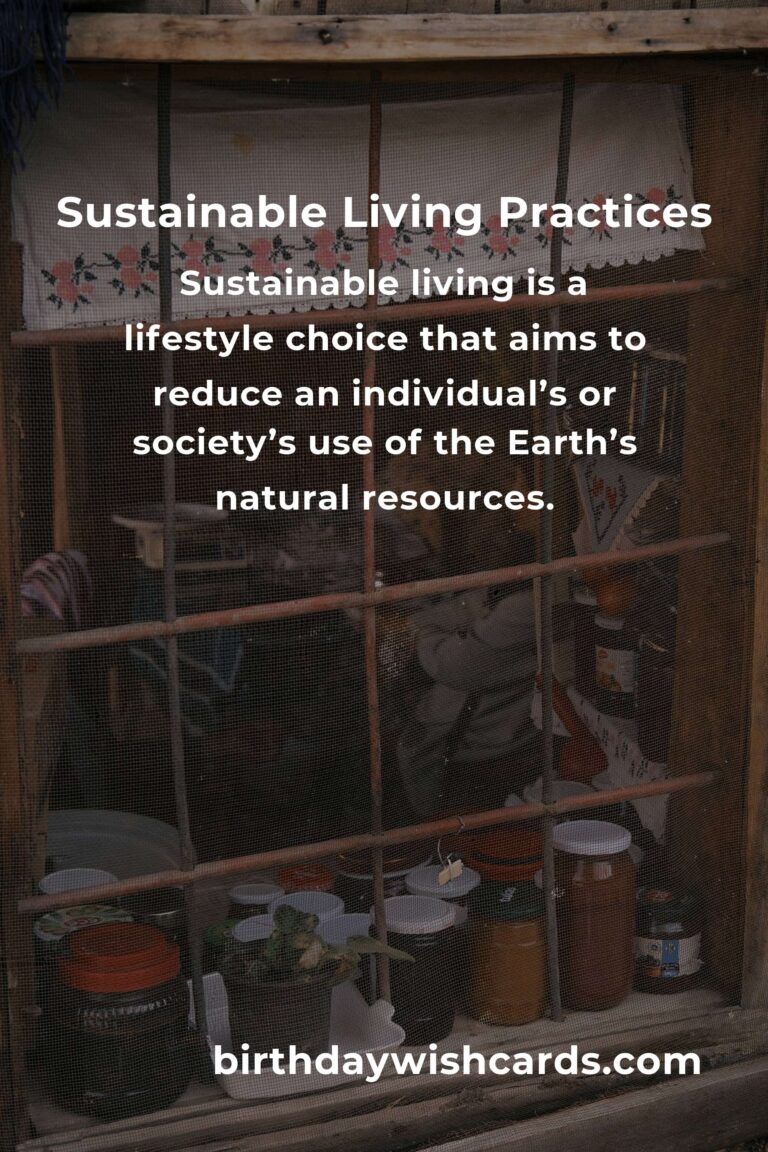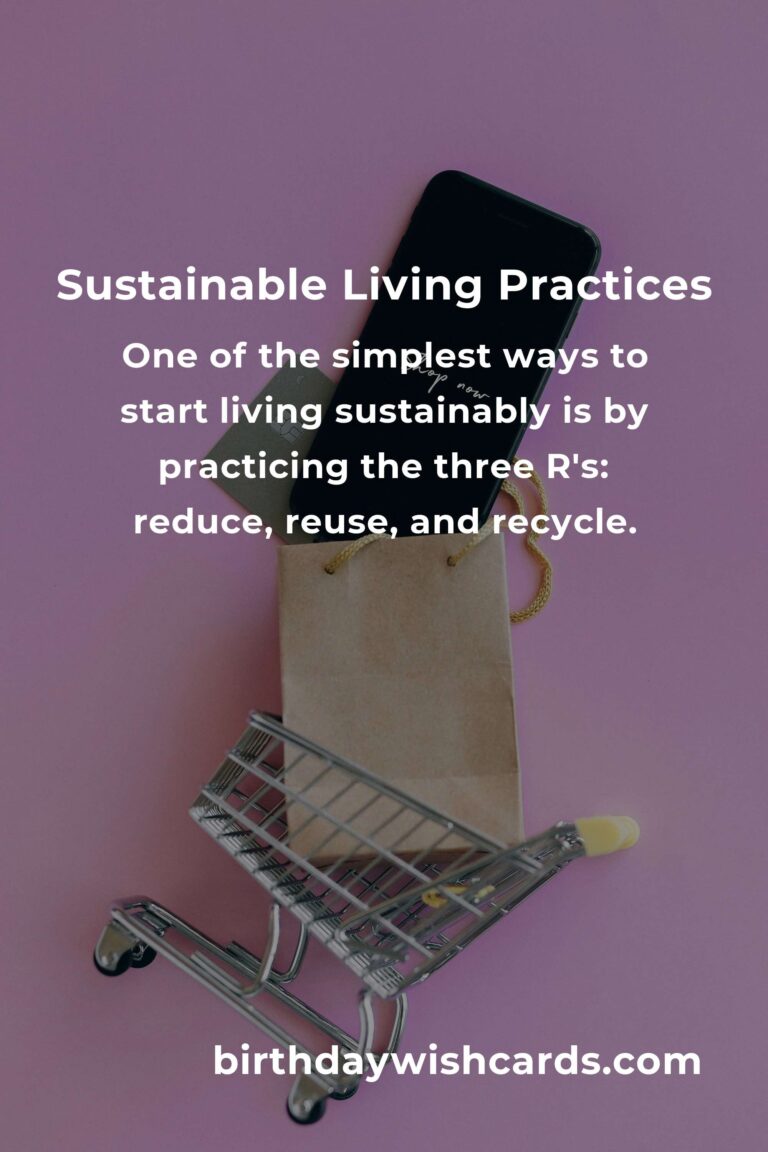
Sustainable living is a lifestyle choice that aims to reduce an individual’s or society’s use of the Earth’s natural resources. By adopting sustainable practices, you can contribute to a healthier planet and a more balanced life. This article will guide you through simple steps to incorporate sustainable living into your daily routine.
Understanding Sustainable Living
Sustainable living involves making conscious decisions that minimize your environmental footprint. This can include reducing waste, conserving energy, and choosing eco-friendly products. The goal is to meet present needs without compromising the ability of future generations to meet theirs.
Benefits of Sustainable Living
Adopting sustainable living practices offers numerous benefits, both for the environment and your personal well-being. Not only does it help reduce pollution and conserve resources, but it also promotes a healthier lifestyle, reduces costs, and fosters a stronger connection to nature.
Simple Steps to Start Sustainable Living
1. Reduce, Reuse, Recycle
One of the simplest ways to start living sustainably is by practicing the three R’s: reduce, reuse, and recycle. Reduce your consumption by purchasing only what you need, reuse items instead of discarding them, and recycle materials whenever possible.
2. Conserve Energy
Energy conservation is crucial for sustainable living. Turn off lights when not in use, unplug appliances, and consider investing in energy-efficient devices. Small actions can lead to significant energy savings over time.
3. Choose Sustainable Products
When shopping, opt for products made from sustainable materials and those with minimal packaging. Look for certifications such as Fair Trade or organic labels that indicate environmentally friendly practices.
4. Support Local and Organic Foods
Buying local and organic foods reduces your carbon footprint by minimizing transportation emissions and supporting sustainable farming practices. Visit farmers’ markets or join a community-supported agriculture (CSA) program to access fresh, seasonal produce.
5. Reduce Water Usage
Conserving water is another key aspect of sustainable living. Fix leaks promptly, take shorter showers, and consider installing water-saving devices. These measures will help conserve a vital resource and reduce your utility bills.
6. Embrace Minimalism
Minimalism complements sustainable living by encouraging you to focus on what truly matters. By living with less, you can reduce waste, save money, and free up time and energy for more meaningful activities.
Conclusion
Embracing simple sustainable living is a powerful way to contribute to a healthier planet and improve your quality of life. By incorporating these practices into your daily routine, you can make a positive impact on the environment and inspire others to do the same.
Sustainable living is a lifestyle choice that aims to reduce an individual’s or society’s use of the Earth’s natural resources. The goal is to meet present needs without compromising the ability of future generations to meet theirs. Adopting sustainable living practices offers numerous benefits, both for the environment and your personal well-being. One of the simplest ways to start living sustainably is by practicing the three R’s: reduce, reuse, and recycle. Energy conservation is crucial for sustainable living. Buying local and organic foods reduces your carbon footprint by minimizing transportation emissions and supporting sustainable farming practices. Embracing simple sustainable living is a powerful way to contribute to a healthier planet and improve your quality of life.
#SustainableLiving #EcoFriendly #GreenLiving #Environment #Minimalism













